
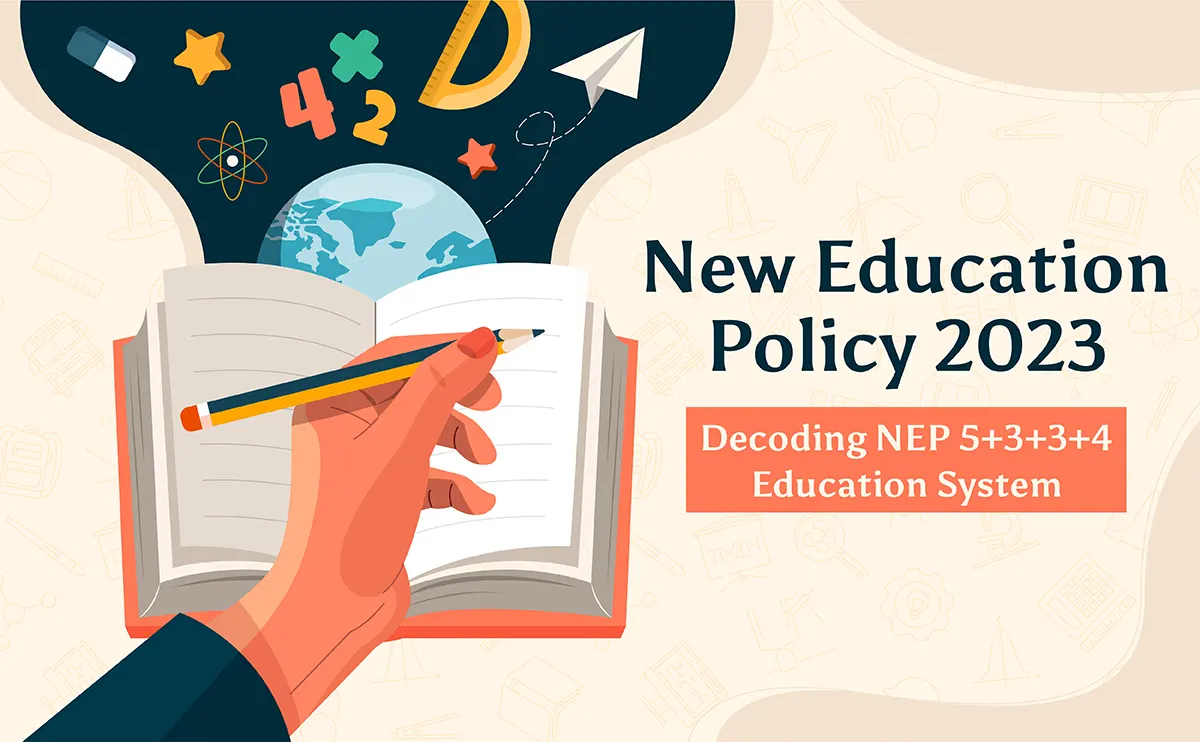
New Chapter in Education with the National Education Policy (NEP)
Hey there, curious minds! Ever heard of the National Education Policy (NEP)? It’s like a guidebook but for schools and learning in India. But hold on, it’s not just rules; it’s a plan to make our education system super cool!
Think of it as a roadmap that wants to change how we learn and grow. The NEP isn’t telling us what to do; it’s like a friend saying, “Let’s make learning awesome together!” It talks about teamwork and everyone doing their part.
Now, as we start this journey into the NEP world, we’re not just talking about papers and rules. We’re stepping into a story that will shape how we learn in the future. The NEP uses words like “we” and “us” a lot, showing it’s not just for teachers or leaders – it’s for all of us.
We’re going to explore what makes the NEP special, understand its main ideas, and then see how schools can make these ideas real. It’s not about boring stuff; it’s an exciting invitation to try new ways of learning, be creative, and understand the world in a big, awesome way!
So, get ready for an adventure in education where the NEP is like a guide helping us discover new and exciting things. This is just the beginning, and together, we’re going to uncover the amazing possibilities the National Education Policy brings to our schools and our learning journey. Let’s dive in!
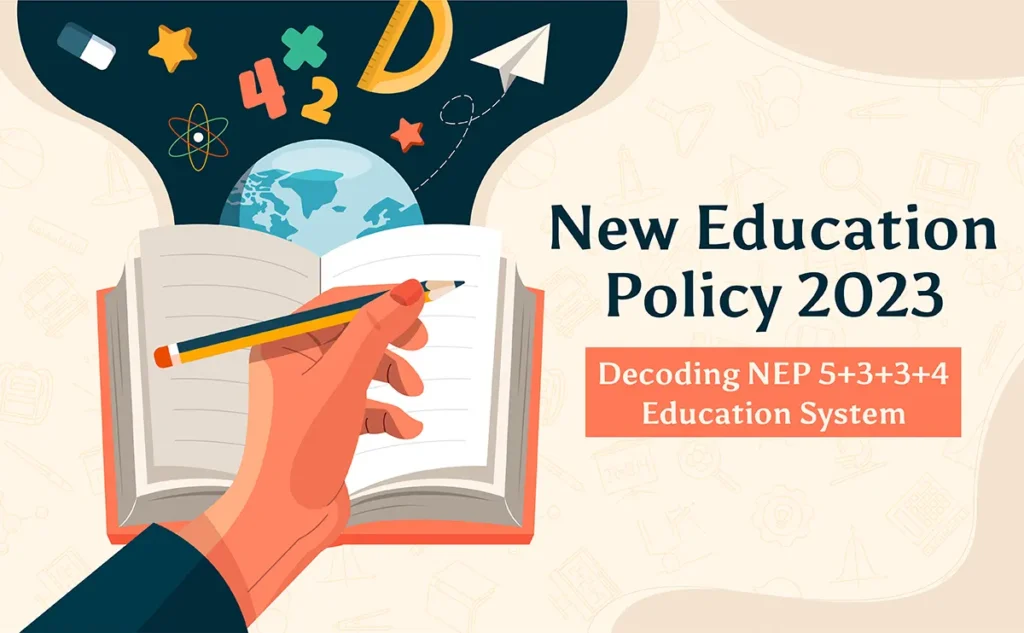
Revitalizing Education: A Journey into the National Education Policy (NEP) and its Implementation in Schools
The implementation of the National Education Policy (NEP) represents a major advancement in the constantly changing field of education. With the goal of promoting holistic development and equipping students for the challenges of the twenty-first century, this revolutionary policy seeks to reshape India’s educational system. We will examine the NEP and identify the critical actions needed to successfully execute it in schools during this investigation.
Recognizing the NEP as a Sign of Change
The National Education Policy is a blueprint for how education will develop in our nation—it is more than just a collection of regulations. It highlights an approach that is learner-centric and promotes creativity, critical thinking, and a comprehensive comprehension of the material. The policy’s passive voice emphasizes a shared accountability, highlighting the fact that education is a shared journey in which legislators, educators, and students all play crucial responsibilities.
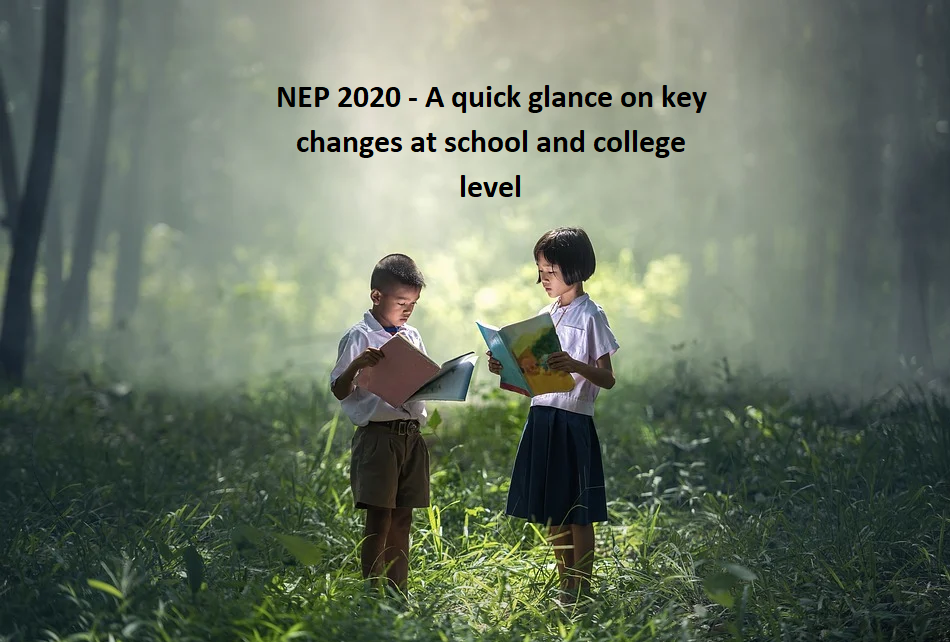
Important NEP Foundations
The creation of a strong and adaptable education system is the overriding purpose of the NEP, which is supported by a number of important pillars. The policy presents a comprehensive future vision, from the guiding principles to the specific measures. The policy’s wording, which stresses inclusivity and conveys that all stakeholders are essential to its success, is written in the passive voice.
Implementation Steps in Schools: A Transformation Roadmap
A rigorous roadmap is required for the NEP to be implemented in schools, ensuring that the goals stated in the policy are translated into significant improvements in the classroom. The crucial steps for successful implementation are as follows:
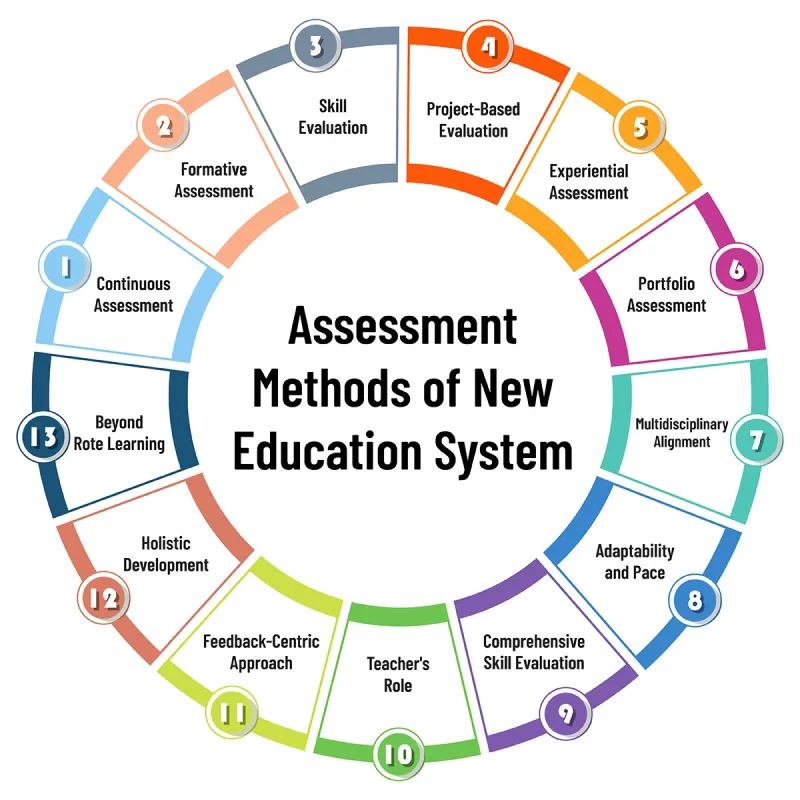
Curriculum Rejuvenation: The NEP promotes a curriculum that is more adaptable and interdisciplinary. In order to give children a varied and engaging education, schools must modify their curricula to comply with these requirements.
Teacher Training and Development: The use of the passive voice emphasizes the importance of teamwork for effective execution. Teachers have a critical role to play, so it is imperative that they receive training that supports the NEP values. Understanding the new curriculum and embracing cutting-edge teaching techniques are both necessary for this.
Reimagining Assessment: According to the NEP, skill-based evaluation will replace memorization. Instead of assessing memory, schools should reconsider how they assess students’ conceptual knowledge and application.
Technology Integration:
The policy acknowledges the role that technology plays in education. To ensure that students are proficient with the tools they will encounter in the future, schools must make investments in infrastructure and training to allow technology to be easily integrated into the learning process.
Practices that Promote inclusion: The NEP places a strong emphasis on inclusion and strives to give all students, regardless of background, a high-quality education. It is imperative for educational institutions to devise tactics that guarantee equitable access to education for all children, irrespective of their ability or financial circumstances.
Community Involvement: Education is a team endeavor. Parents, the community, and other interested parties should be actively involved in the implementation process by schools. The use of the passive voice in communication highlights how everyone must contribute to the NEP’s success.
Learning Path Flexibility: Students can select their learning paths according to their interests and abilities thanks to the NEP’s encouragement of flexibility. To foster each student’s distinctive potential, schools must establish an atmosphere that encourages individualized learning experiences.
also Read : The Unsung Heroes – MSMEs
Final Thought: An Individual Call for Reforming Education
As we come to the end of our investigation of the National Education Policy and the steps schools must take to execute it, consider the revolutionary trip that Indian education is about to undertake. Throughout the policy, the passive voice conveys that everyone is working together to create this policy rather than it being imposed from on high.
You have now, my dear reader, navigated the NEP’s halls, grasping its cornerstones and the crucial procedures for putting it into practice in classrooms. It is a template for a new age in education, where every learner is respected and every educator is empowered, not just a policy.Think about how you fit into this educational revolution as you explore the opportunities that the NEP offers. In what ways can you support the development of an inclusive, critical-thinking, and creative learning environment? You hold the key to the solution.

Click Here to Take Part in the Education Revolution
Explore the ways we can actively support the NEP’s successful implementation by clicking here. Whatever you do now will have an impact on how education is delivered in our nation in the future. Participate in the movement and witness firsthand how education in India has changed.
Attention Please: If your school needs ERP Software for School Management, Please read this blog on School ERP Software By Khabai Tech to grow your school.
Together, we can make India a more resilient and successful place by recognizing and honoring the powerful MSMEs. We are grateful that you are a part of the MSMEs’ transformational story and the unsung heroes who are reshaping our economic future.
Barkha Sachdeva is a B.Com(Hons) graduate from Delhi University. Passionate about crafting content, she enjoys writing about fashion, beauty, technology, and travel. With three years of content writing experience, she possesses valuable insights and ideas in these domains.








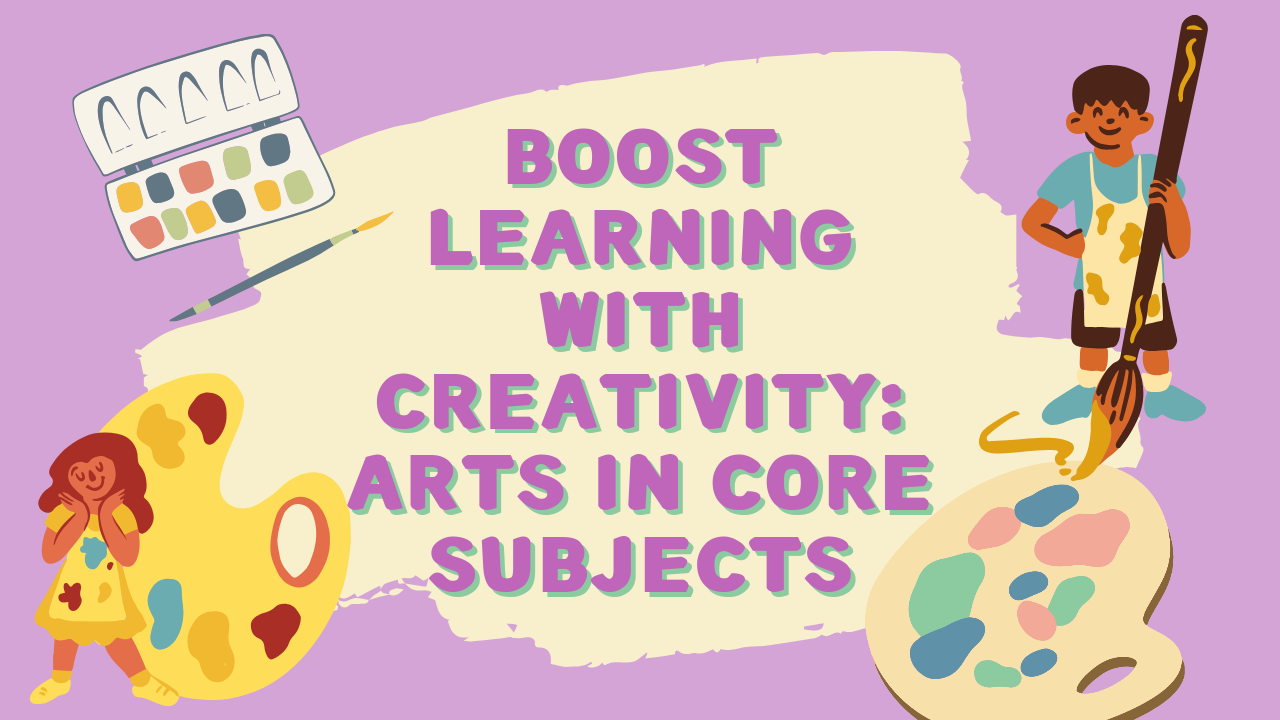
3 comments